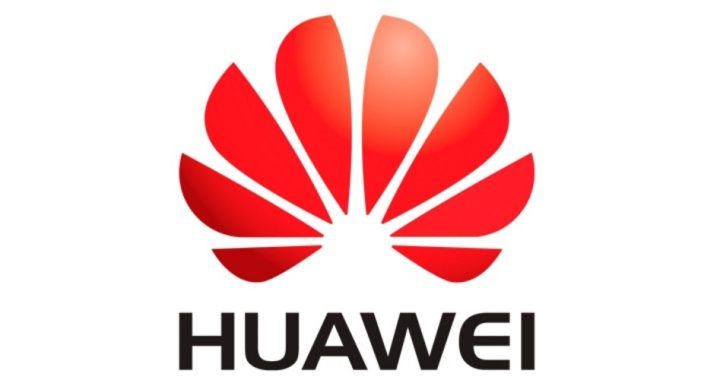
Podcast: Play in new window | Download ()
Subscribe: Android | RSS | More
The U.S. Department of Justice released an expanded indictment of China’s telecommunications giant Huawei on Thursday, claiming that the world’s largest technology company is acting like the Mafia in its operations: lying, cheating, and stealing in its efforts to destroy its enemies and dominate the globe.
The indictment supersedes two previous indictments issued last year and expands the charges to include a conspiracy to violate the Racketeer Influenced and Corrupt Organizations Act (RICO). The indictment also adds a charge of conspiracy to steal trade secrets through the company’s “long running practice of using fraud and deception to misappropriate [steal] sophisticated technology from U.S. [competitors],” said the department in its press release. Added the release:
As revealed by the government’s independent investigation and review of court filings, the new charges in this case relate to the alleged decades-long efforts by Huawei, and several of its subsidiaries, both in the U.S. and in the People’s Republic of China, to misappropriate intellectual property, including from six U.S. technology companies, in an effort to grow and operate Huawei’s business.
The misappropriated intellectual property included trade secret information and copyrighted works, such as source code and user manuals for internet routers, antenna technology and robot testing technology.
The press release explained how the criminal enterprise operates, by lying, cheating and stealing:
The means and methods of the alleged misappropriation included entering into confidentiality agreements with the owners of the intellectual property and then violating the terms of the agreements by misappropriating the intellectual property for the defendants’ own commercial use, recruiting employees of other companies and directing them to misappropriate their former employers’ intellectual property, and using proxies such as professors working at research institutions to obtain and provide the technology to the defendants.
As part of the scheme, Huawei allegedly launched a policy instituting a bonus program to reward employees who obtained confidential information from competitors. The policy made clear that employees who provided valuable information were to be financially rewarded.
Count One contained in the indictment itself explained what Huawei’s real purpose is: “The principal purpose of the Huawei Enterprise was to grow the global ‘Huawei’ brand into one of the most powerful telecommunications equipment and consumer electronics companies in the world by entering, developing and [then] dominating the markets for telecommunications and consumer electronics technology and services in each of the countries in which the Huawei Enterprise operated.”
That includes especially its enemy, the United States.
The RICO charge raises the level of intensity of the United States in its awakening of the danger from Huawei. Said Julian Ku, professor at Hofstra University’s Law School, “It escalates the charges rather dramatically, alleging Huawei itself is a criminal enterprise.… RICO is different because it means that all of the various things Huawei is alleged to have done are part of a larger plan.”
The indictment was released just two days after the Wall Street Journal reported that Huawei deliberately and intentionally developed “back door” access in its software that “can covertly access mobile-phone networks around the world.” The Journal noted that “Huawei has had this secret capability for more than a decade.”
Explained the Journal, “Huawei has built equipment that secretly preserves its ability to access networks through these interfaces, without the carriers’ knowledge.”
U.S. National Security Advisor Robert O’Brien said, “We have evidence that Huawei has the capability secretly to access sensitive and personal information in systems it maintains and sells around the world. Huawei does not disclose this covert access to its customers or … national security agencies.”
The expanded indictment includes charges made previously that Meng Wanzhou, the company’s chief financial officer, is party to the crime. She was arrested on December 1, 2018 in Canada, where she is awaiting extradition to the United States.
Richard Burr, chairman of the U.S. Senate’s Intelligence Committee, said “the indictment paints a damning portrait of an illegitimate organization that lacks any regard for the law,” while Attorney General William Barr painted an even darker picture: “Our economic future is at stake. The risk of losing the 5G struggle with China should vastly outweigh other considerations.”
Huawei is the present-day equivalent of the Trojan Horse of Greek mythology. Instead of soldiers in the belly of the beast, the software built into Huawei hardware allows the communist Chinese government to surveil, monitor, track, and spy on its users, hoping to gain an advantage fatal to its enemies.
This is what author Jonathan Ward warned about in his China’s Vision of Victory: “While history does not repeat itself, its realities are a guide. In a world where China is supreme, we may ultimately see the erosion of the Westphalian world order [of sovereign states] … and its replacement with a system built on Chinese supremacy. China’s classical world order casts China as the arbiter of ‘order and peace’ for ‘all under heaven.’”
The United States is late to the game. Very late. Hopefully not too late to thwart the evil machinations of an evil regime working to subject the world to its evil purposes.
An Ivy League graduate and former investment advisor, Bob is a regular contributor to The New American, writing primarily on economics and politics. He can be reached at [email protected].
Related article:



